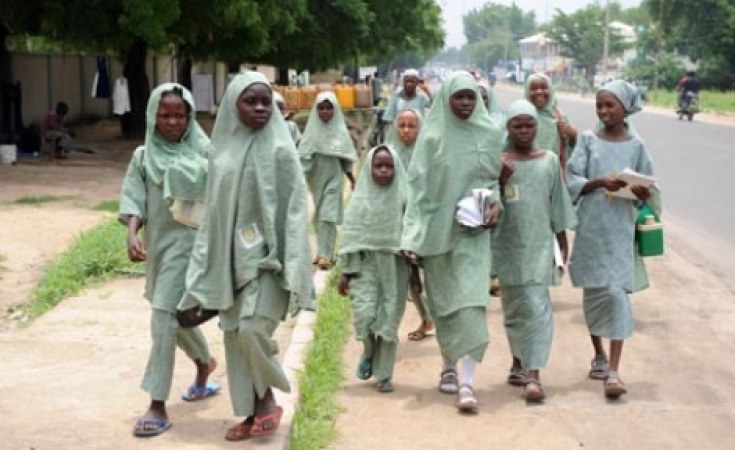Boko Haram is wild and frightening, which is undermining the support it had. The Nigerian government could take advantage of this weakness.
The recent Chibok abduction has ignited widespread anxiety in Nigeria about the Boko Haram insurgency, which has gained momentum since 2009 following its attacks on police stations, and government buildings. Despite a year of emergency rule and military operations in the northeast, the insurgents are still able to execute ambitous operations, such as the mass abduction of 234 school girls in plain sight.
The Chibok abduction has, on the one hand, been a blow to the counter-insurgency efforts by the government, exposing the irrefutable security gaps in the Borno State. Insurgents are still able to operate with impunity in many rural areas, untouched by the military. However, the very nature of the Chibok abduction has also been a public relations disaster for Boko Haram revealing a disregard for even the most vulnerable civilians. Chibok is only one recent example of the insurgency's attacks on civilian targets. Over the last few months they have raided dozens of villages, killing hundreds of civilians.
Losing friends and alienating people
Insurgencies usually need some level of local support to survive in the long term. Popularity provides vital benefits including access to funding networks, a large pool of willing recruits, acquiescence and even support from local elites, and shelter from the military forces. Without these benefits, insurgencies are far more vulnerable to military defeat. In Afghanistan, the Taliban have for a number of years commanded the support of approximately a third of the Afghan population. This is one reason why they have proven extremely difficult to eliminate. But there are indications that Boko Haram's attacks on civilian targets are starting to undermine its local support base in Borno.
Recruitment challenges
International Crisis Group claimed in a recent report that the Boko Haram rank and file have been decimated by military operations. Interestingly, they appear to have struggled to regenerate through voluntary recruitment. The report suggests they have instead resorted to forced conscription and recruiting criminal guns-for-hire. They have also taken to recruiting from across the border in Cameroon, Niger, and Chad.
Although, these recruits might be considered as foreigners, the idea of distinct borders applies very loosely as with many nations across Africa. The recruits are Kanuri, tied to Borno by ethnic and cultural ties stretching back hundreds of years. Nonetheless, they are still outsiders in the sense they are not from local communities.
A few years ago Boko Haram would not have struggled to attract recruits in Borno. It started off as a mass movement, preying on the grievances of Borno's youth - unemployment, inequality, marginalisation, chronic poverty, and disillusionment with a government seen as distant and corrupt. It attracted followers by delivering services that the government couldn't provide. In addition to its Islamic appeal, it also became an expression of north-eastern nationalism; a conduit through which the people of the northeast could express their dissatisfaction with their region's increasing exclusion from the political and economic life of the rest of the country.
Unattractive leadership
However, under the leadership of Abubaker Shekau Boko Haram's popularity and therefore its ability to recruit, seems to be compromised. Shekau's alienating tactics will not come as a surprise to those who keep track of his public statements. His video messages often degenerate into violent, angry rants. In one recent example, he stated, "our religion and our way of worship is nothing but killings, killings and killings."
Arguably, Shekau has also gone out of his way to repudiate any sense that Boko Haram is a vehicle for north-eastern or northern nationalism. In a recent message transcribed in the New Issues Magazine Shekau explained, "Nigerians, let me let you know that you are in serious disaster. Don't think we are northerners, because you are misunderstanding the whole thing" then adding, "[we] are not fighting the north, we are fighting the world. And you will see us fighting the world. This is our job."
Equally, he has jeopardised the group's appeal to Muslims by threatening to kill Borno's Muslim leaders and by ultimately killing more Muslims than Christians.
More moderate voices within Boko Haram have reportedly been purged in recent years, including those who have advocated for dialogue with the government. Left without their moderating influence, Shekau seems to be turning Boko Haram from a mass movement into a rampaging, LRA-like sect with outsiders, criminals, and forced conscripts for soldiers.
Security and politics
Therefore, Boko Haram would be vulnerable to a counter-insurgency strategy that includes political elements. The strategy advocated by the president's new National Security Adviser, Sambo Dasuki, is promising in this respect. For the first time, it acknowledges the role of political counter-insurgency. An alternative to the solely military strategy the government has pursued up until now, with all its collateral damage, has undoubtedly left many in Borno wondering which is worse, Boko Haram or the security forces.
There is the potential for Nigeria to build the counter-insurgency campaign into a mass movement, rather than a solely military enterprise. "I don't mean turning millions of civilians into soldiers. I mean simple things like encouraging people to inform on Boko Haram rather than sheltering them, and to dissuade their sons, brothers, and friends from joining them", Dasuki explained.
Although, the following steps appear to be simple, they are quite the opposite, requiring close relationships between the army, the police, the government, and the conflict-affected communities. They require diplomacy and trust. It remains to be seen whether the Nigerian government actually takes advantage of this weakness.
Andrew Noakes is a writer and journalist formerly of Amnesty International and Save the Children. Follow him at @andrew_noakes.


